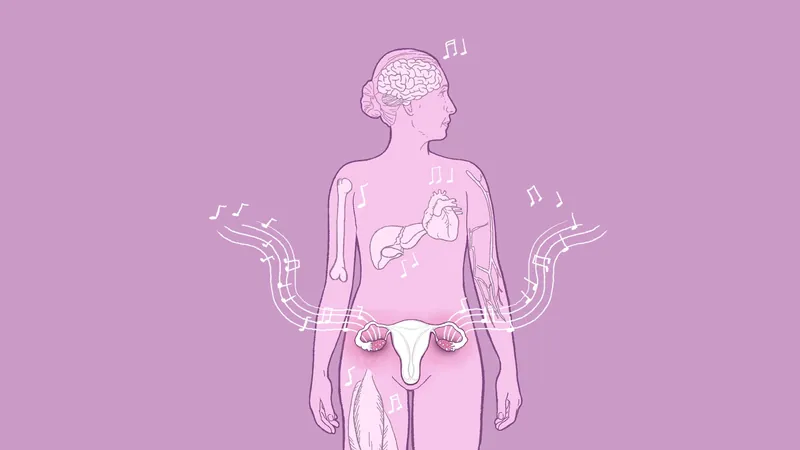
Unlocking the Hidden Role of Ovaries: The Key to Women's Health and Longevity
2025-06-29
Author: Siti
More Than Just Reproductive Organs
Often thought of solely as reproductive entities, ovaries hold a pivotal role in women’s overall health and longevity. As life expectancy rises, understanding the importance of ovarian health has never been more essential. Research shows that alongside fertility, the aging of ovaries significantly impacts women’s susceptibility to age-related diseases.
The Longevity Paradox: Living Longer but Not Healthier
While women generally outlive men, they often face prolonged periods of ill health. Studies indicate a direct link between declining ovarian function and rising health risks after menopause. Women over 55 experience a stark increase in cardiovascular events, especially if they undergo menopause early. In fact, research suggests that late menopause could correlate with a longer, healthier life.
The Ovarian Function: A Complex Journey
At birth, ovaries contain up to 2 million follicles, crucial for egg development. However, by puberty, that number dwindles to around 300,000. Each menstrual cycle is a complicated orchestration of hormonal communication where only a single follicle typically matures and ovulates.
Hormonal Symphony: The Ovaries’ Influence
Beyond reproduction, ovaries produce a symphony of hormones that regulate various body functions such as bone density, heart health, and metabolism. An imbalance in these hormones after menopause can lead to profound health issues, making the study of ovarian health vital for overall well-being.
What Happens as Ovaries Age?
As women age, the number and quality of follicles decline drastically, leading to challenges in fertility, bone health, and cognitive function. This age-related deterioration culminates in menopause, marked by thousands of cycles that leave the ovaries structurally compromised.
Management Strategies: Lifestyle and Hormone Therapy
To combat ovarian decline, lifestyle modifications—such as regular exercise and healthy eating—are key. Hormone therapy also remains an option, although past controversies have led to a reevaluation of its safety. New research indicates that modern hormone treatments might mitigate some associated risks.
Keeping Tabs on Ovarian Health
Unlike other organs, tracking ovarian health isn’t straightforward. Menstrual cycles serve as vital indicators, but hormonal contraception can mask changes. Doctors can assess ovarian function through blood tests measuring anti-Müllerian hormone (AMH) or follicle counts.
Future Insight: Delaying Ovarian Aging
Groundbreaking research is exploring innovative avenues such as anti-Müllerian hormone pills and compounds like rapamycin to slow ovarian aging. Personalized treatments could revolutionize how women manage their reproductive health well into their later years, ensuring longevity aligns with health.
The Call for More Research on Ovarian Aging
As our understanding of ovarian health evolves, the pressing need for comprehensive research becomes clear. Whether examining how to extend ovarian function responsibly or tailoring treatments uniquely for women, the future holds promising possibilities for advancing women’s health.



 Brasil (PT)
Brasil (PT)
 Canada (EN)
Canada (EN)
 Chile (ES)
Chile (ES)
 Česko (CS)
Česko (CS)
 대한민국 (KO)
대한민국 (KO)
 España (ES)
España (ES)
 France (FR)
France (FR)
 Hong Kong (EN)
Hong Kong (EN)
 Italia (IT)
Italia (IT)
 日本 (JA)
日本 (JA)
 Magyarország (HU)
Magyarország (HU)
 Norge (NO)
Norge (NO)
 Polska (PL)
Polska (PL)
 Schweiz (DE)
Schweiz (DE)
 Singapore (EN)
Singapore (EN)
 Sverige (SV)
Sverige (SV)
 Suomi (FI)
Suomi (FI)
 Türkiye (TR)
Türkiye (TR)
 الإمارات العربية المتحدة (AR)
الإمارات العربية المتحدة (AR)